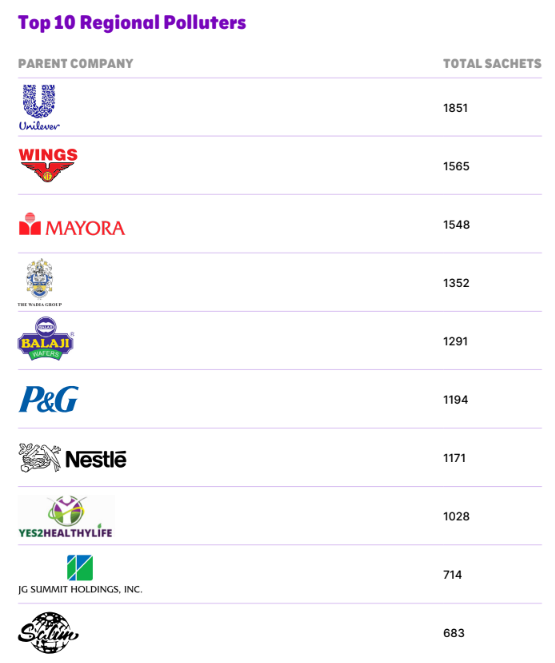Exposed: The ‘Sachet Scourge In Asia’
- John
- Jul 2, 2024
- 2 min read
Updated: Jan 26
A recent report highlights problems caused by plastic sachets in Asia, and the limited work being done by companies that sell them. ‘BRANDED: THE SACHET SCOURGE IN ASIA’, a report by #BreakFreeFromPlastic, documents the prevalence, types and producers of sachet pollution found in mainland and maritime regions of India, Indonesia, the Philippines and Vietnam.

From October 2023 to February 2024, the group worked to collect 33,467 sachets from 50 locations across the four countries, then classified them by brand and type. Unilever is the outright winner, accounting for more sachets than any other company.
The report says an estimated 855 billion sachets are sold globally each year with Southeast Asia consuming nearly half of the total and this figure is projected to rise to 1.3 trillion by 2027.
Since they are multi-layer composites, sachets are impossible to recycle.
Difficulties of processing sachets in waste management systems means they end up in landfills, rivers, and beaches, harming ecosystems, wildlife, and ultimately, human health and livelihoods.
Authors state that:
The top sachet polluter Unilever carries a huge responsibility to act on this issue. As a company that touts their sustainability initiatives in marketing and on the international stage, it is time they put their money where their mouth is. Unilever has pioneered terrible false solutions to give the public the impression they are tackling sachets, while the ex-CEO openly admits that sachets need to be gotten rid of. It’s time for Unilever to commit to urgently phasing out sachets, and replace them with inclusive, accessible reuse and refill systems.
In its report, #BreakFreeFromPlastic details various initiatives and actions being taken in the countries to address the sachet problem, but none to date look to be scalable and suitable for all income groups. It remains a problem without easy solutions.
One notable initiative not mentioned in the report is Beat The Sachet, a project in India that is demonstrating a circular alternative to the disposable plastic sachet. It has been running since 2022 and is now expanding to demonstrate it can work at scale and meet the needs of low-income communities.
Beat The Sachet has on several occasions contacted Unilever in the UK and Hindustan Unilever in India to explore partnering options, knowledge sharing and other support and has always been declined or ignored.
REUSE Foundation is providing urgently needed financial support to Beat The Sachet to help it explore circular solutions and build a path to financial sustainability.

Comments